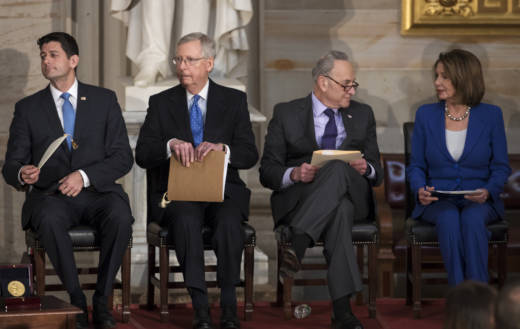Congressional leaders appear to have reached a deal on a $1.3 trillion spending package ahead of a midnight Friday deadline.
The must-pass budget behemoth was still in the works Wednesday afternoon, raising the possibility of the the need for another stop-gap funding measure otherwise a partial government shutdown would occur until the bill can pass Congress. The agreement is expected to be loaded with dozens of unrelated policies aimed at wooing skeptical lawmakers to back the deal.
Democrats and Republicans each claimed victories after days of partisan bickering over what extraneous provisions, known as "riders," to tuck into the bill. They ultimately agreed to include improvements to the national gun background check system.
The bill also includes nearly $1.6 billion in border security increases without addressing a legal fix for the roughly 700,000 immigrants who stand to lose protection under the Deferred Action for Childhood Arrivals program, also known as DACA, according to several aides familiar with the negotiations.
It's a common -- if sometimes controversial -- practice used by both parties and the president to jockey for their priorities because they are guaranteed to become law on a must-pass spending bill. Adding to the negotiating pressures this round is the looming midterm election, and the reality that the political season will soon overtake any ability to advance any additional major legislation before Election Day.
